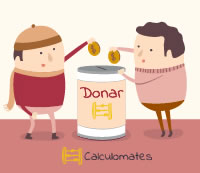Divisors of 172179
Sheet with all the Divisors of 172179
Divisors of 172179
The list of all positive divisors (that is, the list of all integers that divide 22) is as follows :
Accordingly:
172179 is multiplo of 1
172179 is multiplo of 3
172179 is multiplo of 7
172179 is multiplo of 9
172179 is multiplo of 21
172179 is multiplo of 27
172179 is multiplo of 63
172179 is multiplo of 189
172179 is multiplo of 911
172179 is multiplo of 2733
172179 is multiplo of 6377
172179 is multiplo of 8199
172179 is multiplo of 19131
172179 is multiplo of 24597
172179 is multiplo of 57393
172179 has 15 positive divisors
Parity of 172179
172179is an odd number,as it is not divisible by 2
The factors for 172179
The factors for 172179 are all the numbers between -172179 and 172179 , which divide 172179 without leaving any remainder. Since 172179 divided by -172179 is an integer, -172179 is a factor of 172179 .
Since 172179 divided by -172179 is a whole number, -172179 is a factor of 172179
Since 172179 divided by -57393 is a whole number, -57393 is a factor of 172179
Since 172179 divided by -24597 is a whole number, -24597 is a factor of 172179
Since 172179 divided by -19131 is a whole number, -19131 is a factor of 172179
Since 172179 divided by -8199 is a whole number, -8199 is a factor of 172179
Since 172179 divided by -6377 is a whole number, -6377 is a factor of 172179
Since 172179 divided by -2733 is a whole number, -2733 is a factor of 172179
Since 172179 divided by -911 is a whole number, -911 is a factor of 172179
Since 172179 divided by -189 is a whole number, -189 is a factor of 172179
Since 172179 divided by -63 is a whole number, -63 is a factor of 172179
Since 172179 divided by -27 is a whole number, -27 is a factor of 172179
Since 172179 divided by -21 is a whole number, -21 is a factor of 172179
Since 172179 divided by -9 is a whole number, -9 is a factor of 172179
Since 172179 divided by -7 is a whole number, -7 is a factor of 172179
Since 172179 divided by -3 is a whole number, -3 is a factor of 172179
Since 172179 divided by -1 is a whole number, -1 is a factor of 172179
Since 172179 divided by 1 is a whole number, 1 is a factor of 172179
Since 172179 divided by 3 is a whole number, 3 is a factor of 172179
Since 172179 divided by 7 is a whole number, 7 is a factor of 172179
Since 172179 divided by 9 is a whole number, 9 is a factor of 172179
Since 172179 divided by 21 is a whole number, 21 is a factor of 172179
Since 172179 divided by 27 is a whole number, 27 is a factor of 172179
Since 172179 divided by 63 is a whole number, 63 is a factor of 172179
Since 172179 divided by 189 is a whole number, 189 is a factor of 172179
Since 172179 divided by 911 is a whole number, 911 is a factor of 172179
Since 172179 divided by 2733 is a whole number, 2733 is a factor of 172179
Since 172179 divided by 6377 is a whole number, 6377 is a factor of 172179
Since 172179 divided by 8199 is a whole number, 8199 is a factor of 172179
Since 172179 divided by 19131 is a whole number, 19131 is a factor of 172179
Since 172179 divided by 24597 is a whole number, 24597 is a factor of 172179
Since 172179 divided by 57393 is a whole number, 57393 is a factor of 172179
What are the multiples of 172179?
Multiples of 172179 are all integers divisible by 172179 , i.e. the remainder of the full division by 172179 is zero. There are infinite multiples of 172179. The smallest multiples of 172179 are:
0 : in fact, 0 is divisible by any integer, so it is also a multiple of 172179 since 0 × 172179 = 0
172179 : in fact, 172179 is a multiple of itself, since 172179 is divisible by 172179 (it was 172179 / 172179 = 1, so the rest of this division is zero)
344358: in fact, 344358 = 172179 × 2
516537: in fact, 516537 = 172179 × 3
688716: in fact, 688716 = 172179 × 4
860895: in fact, 860895 = 172179 × 5
etc.
Is 172179 a prime number?
It is possible to determine using mathematical techniques whether an integer is prime or not.
for 172179, the answer is: No, 172179 is not a prime number.
How do you determine if a number is prime?
To know the primality of an integer, we can use several algorithms. The most naive is to try all divisors below the number you want to know if it is prime (in our case 172179). We can already eliminate even numbers bigger than 2 (then 4 , 6 , 8 ...). Besides, we can stop at the square root of the number in question (here 414.945 ). Historically, the Eratosthenes screen (which dates back to Antiquity) uses this technique relatively effectively.
More modern techniques include the Atkin screen, probabilistic tests, or the cyclotomic test.
Numbers about 172179
Previous Numbers: ... 172177, 172178
Next Numbers: 172180, 172181 ...
Prime numbers closer to 172179
Previous prime number: 172171
Next prime number: 172181

Copyright © 2019
